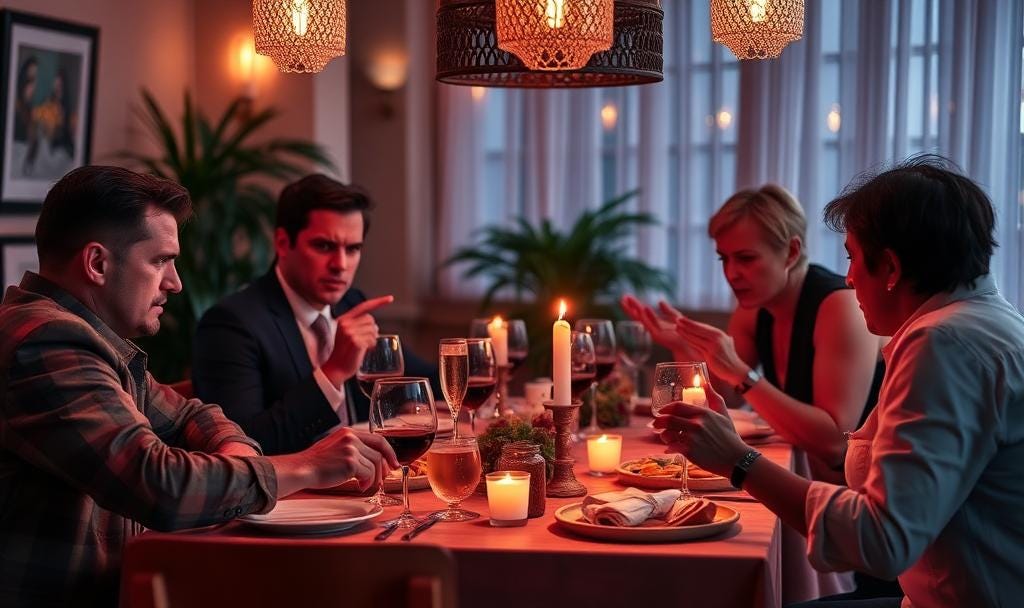Should we discuss politics and religion at dinner?
The table was set with fresh flowers and her good dishes. She spared no expense providing her guests with the choicest cuts of meat and fine wine. The silverware gleamed and crystal goblets sparkled in the candlelight. This dinner had to be perfect because the in-laws of her two daughters were meeting for the first time.
However, shortly after introductions were made, there was a problem. Both fathers fought in WW2-. one Canadian, the other, German. Rude comments were made. The food, so lovingly prepared, stuck in everyone’s throats. The 5 layer chocolate torte never made it out of the fridge. The mothers’ faces, though burning with embarrassment couldn’t touch the creeping chill in the room. All too soon, the guests left. Candle wax dripped, then puddled on the damask tablecloth, unheeded. The evening was a total disaster.
In Emily Post’s original 1922 Etiquette book, she advised avoiding discussions of politics, religion, and other potentially controversial topics at the dining table. The idea was that meals should be pleasant, harmonious occasions, and heated debates could cause discomfort or arguments among guests.
Ah…but what if you’re Jewish or Greek? That’s a different story. Discussing politics or religion is a part of their cultural identity and seen as a way to discover truth. So have at it! But if you’re Chinese, Japanese, British, or hale from Canada, the U.S. or any Nordic countries, it’s generally considered poor taste to discuss these topics over dinner.
However, you can be sure that after tomorrow’s national election, we normally very polite Canadians will not be heeding Ms. Post’s advice. Half of us will be crowing, the other half, spewing vitriol.
I recently read a very interesting article in Psychology Today called “When we suffer political grief.”
It helped me understand why emotions are running so high. Why long-standing friendships are dissolving over a Facebook post. Why family members are disowning each other. Why it feels so personal.
The article ends by saying,
“Ultimately, we must be able to step back and acknowledge the common experience of grief (even if on opposite sides of the continuum) and choose responses that might foster connection despite differences if we hope to reduce the damage being done to ourselves and our communities in the current political climate. Doing this can be incredibly hard, but focusing on our intention to connect rather than our need to defend can constructively guide our responses where possible.”
By the way…
If you’re not Jewish or Greek and are stuck knowing how to facilitate a respectful political conversation, here’s a few good questions to ask:
"I’m really curious how different people are seeing things these days — would you be up for sharing some of your thoughts?"
Or
"I feel like everyone’s political views come from really personal values or experiences. I’d love to hear a little about what shaped yours, if you’re comfortable."
Or
"Lately I’ve been thinking a lot about what makes a society healthy. What do you think is most important for a good society?"
But above all- be curious, not furious!


Dear Sue,
Good morning☀️
This is a great article… it is a keeper for me in the midst of family and community dynamics.
Relationships are so important and love is the highest law. Thank you for sending this message out to us all 🥰